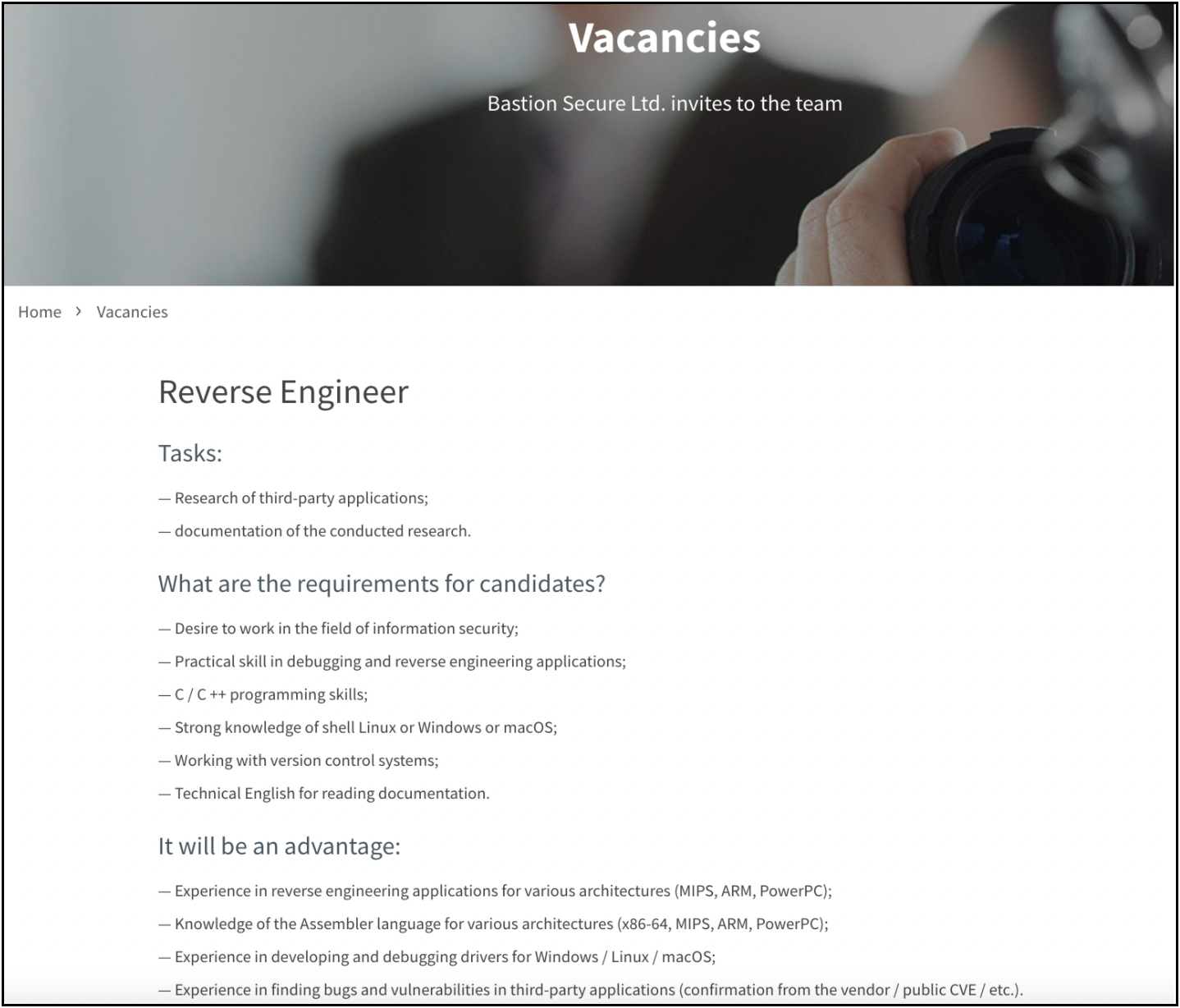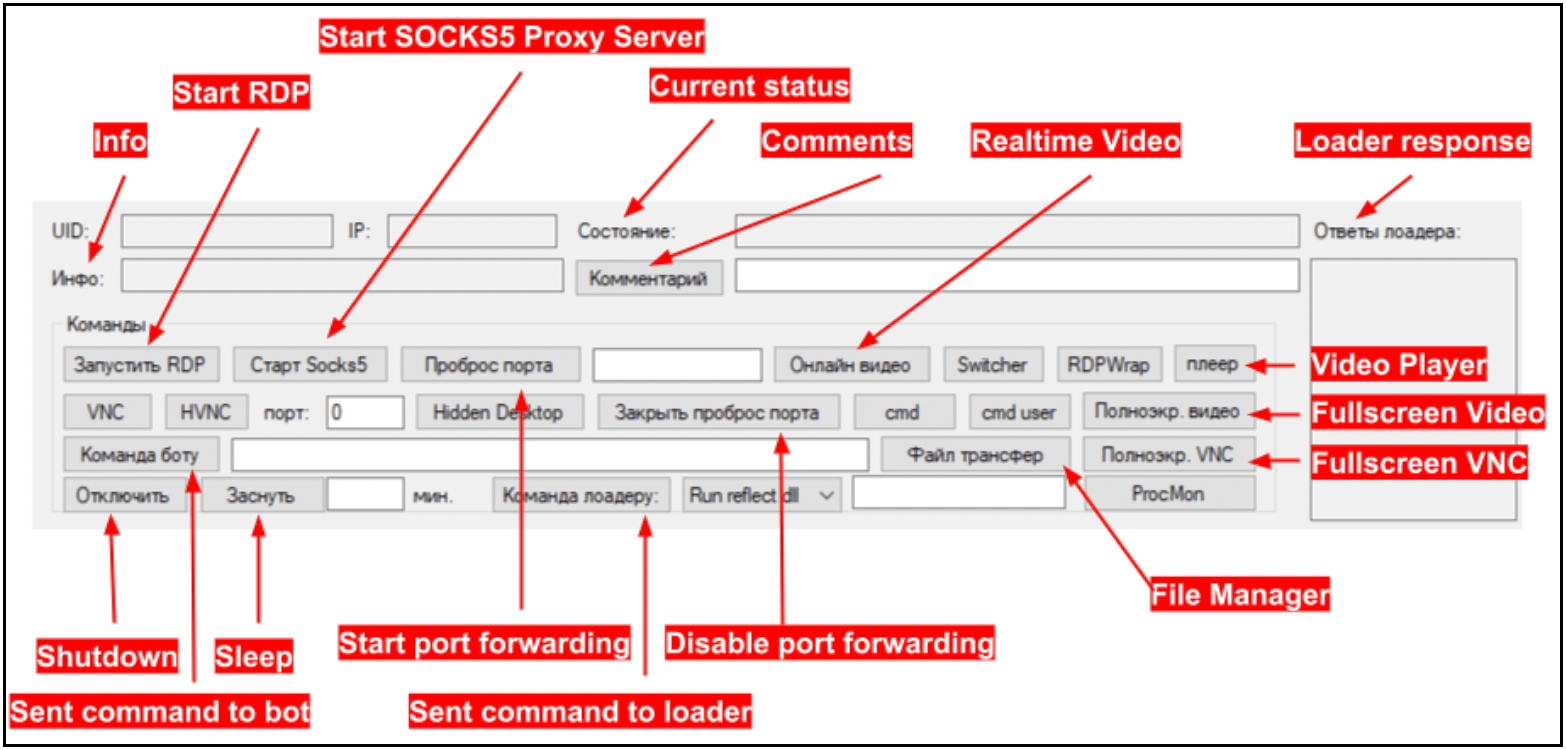
The FIN7 hacking group is attempting to join the highly profitable ransomware space by creating fake cybersecurity companies that conduct network attacks under the guise of pentesting.
FIN7 (aka 'Carbanak') has been involved in cyberattacks and money-stealing campaigns since 2015 when they first appeared in the cybercrime space, including infecting ATMs with MITM-enabling malware.
As ransomware has become a profitable field for cybercriminals, and having previous experience with fake front companies like "Combi Security", the group set up a new firm to lure legitimate IT specialists.
The thin veil of legitimacy around this new corporate entity was lifted by researchers at Gemini Advisory, who found out that the website for a fake cybersecurity company known as Bastion Security comprised of stolen and re-compiled content from other websites.
Even more revealing is that the company states that they are based out of England, but the site serves Russian-language 404 error pages.

Bastion Secure's 'About' page also claims to be a spinoff of the legitimate cybersecurity firm Convergent Network Solutions Ltd.
However, a spokesperson for Convergent confirms that the Bastion Secure site is unaffiliated with their company.
"This website has nothing to do with us. It appears to contain text copied from some of our web pages without permission. As such, we have reported it as a malicious site," a Convergent spokesperson told BleepingComputer.
The Gemini researchers found that FIN7 was offering between $800 and $1,200 per month to recruit C++, PHP, and Python programmers, Windows system administrators, and reverse engineering specialists by following tips from an unnamed source.
In the job requirements, the researchers believe that the hacking group was looking to hire pentesters, as system administrators would also have the ability to map compromised corporate systems, perform network reconnaissance, and locate backup servers and files.

Source: Gemini Advisory
All of these skills are required for pre-encryption stages of ransomware attacks, so it appears that this is what FIN7 is going after through these hiring rounds.
Researchers apply for a job
Gemini's source sent an application to Bastion Secure as a job seeker and was hired, eventually given access to internal tools.
These tools were the well-known post-exploitation tools Carbanak and Lizar/Tirion, disguised as "Command Manager."

Source: Gemini Advisory
As such, the attribution to FIN7 is quite strong, even though the source code of some of these tools was publicly leaked two years ago.
The analyzed sample of Carbanak appears to be an updated version, so the chances of someone else using the leaked tool to work further on it are slim.
Another piece of evidence is that the software was purportedly licensed to "CheckPoint Software Inc", the renowned Israeli security firm, which FIN7 has masqueraded as in other recent attacks.
The hiring process was quite typical, involving an interview, signing contracts and non-disclosure agreements, and basic training.
However, when conducting an actual assignment, it became clear that Bastion Secure was looking for someone to carry out cybercriminal activity.
They provided access to a company’s network, presenting it as a client that ordered pentesting services, and asked the new employee to collect information relevant to admin accounts, backups, etc.
However, FIN7 didn’t provide any legal documentation for this pentesting activity, so Gemini’s source realized they were probably dwelling inside a victimized company using access obtained via illegal means.
By creating fake cybersecurity firms to conduct attacks, Gemini believes it is an attempt to hire cheap labor rather than partnering with affiliates who demand a much larger 70-80% share of any paid ransoms.



Post a Comment Community Rules
You need to login in order to post a comment
Not a member yet? Register Now